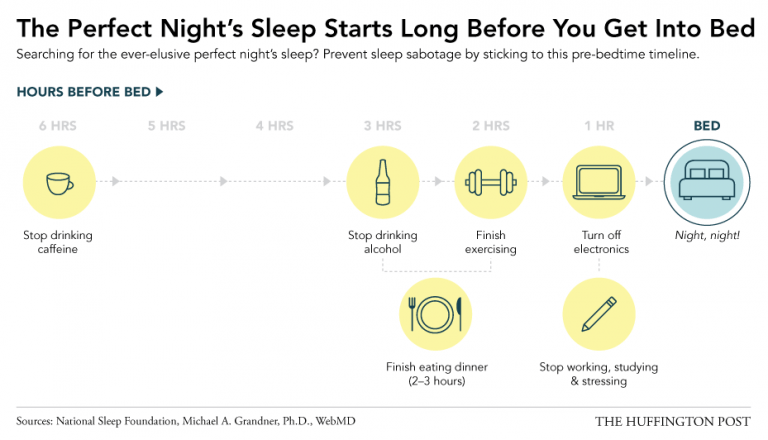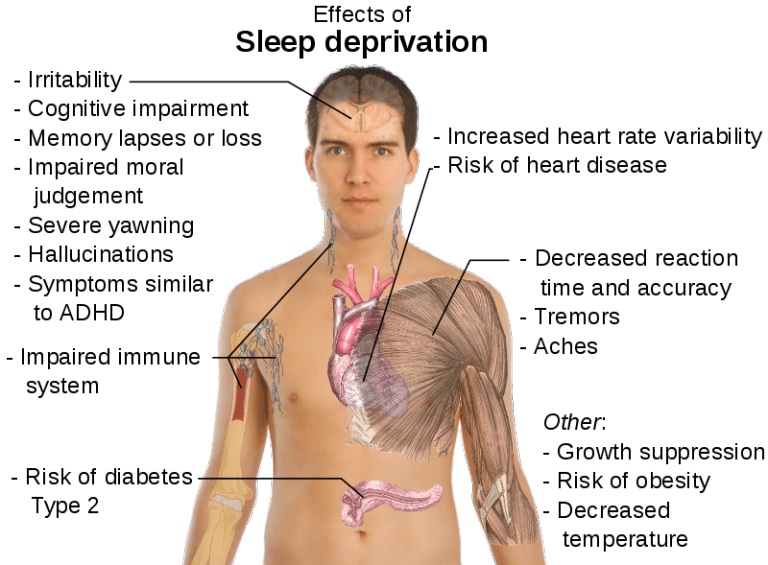
Insomnia Tips: Sleep like a baby
 Insomnia wrecks your mood, energy, and focus.
Insomnia wrecks your mood, energy, and focus.
Kayla Johnson from Tuck realizes this and requested that I share sleep resources with my readers.
A good night’s rest regretfully eludes many of us. Consequently, the outcomes can be dire. Insomnia has many links to mental illness as a cause and an effect. I’ll share a few of Tuck’s insights and research findings here.
Chronically sleep-deprived people, some 20 percent of Americans, are more prone to costly diseases, accidents, and workplace absenteeism, at a steep cost to our national and global economy. The cost of drowsy driving motor vehicle accidents alone is estimated at $56 billion per year. Shift workers, healthcare workers, long-haul truck drivers, military operators, and others in jobs with demanding hours are at higher risk for sleep deprivation and the problems it causes.
Over time, insomnia can cause a wide range of health ailments, including:
- Increased risk of Type 2 Diabetes
- Increased levels of stress hormones
- Higher risk of cardiovascular disease
- Raised levels of inflammation
- Excessive daytime sleepiness
- Anxiety
- Memory problems
- Weight gain
- Increased sensitivity to pain
Sleep deprivation & insomnia also impairs cognitive functioning, decision-making, and reaction times, which is why sleep deprivation increases the risk of vehicle accidents. It is also believed to hasten the effects of aging and reduce the skin’s ability to heal.
If Anxiety is preventing you from restorative shut eye:
1. Practice a healthy sleep hygiene:
Try to go to bed and wake up at the same time, regardless of your schedule.
Establish a bedtime routine. For example, take a hot bath, use a lavender-scented moisturizer, disconnect from social media, and read a book.
Do not drink caffeine several hours before bedtime.
If you have to nap, limit it to 20 minutes.
Do not get your heart rate and adrenaline pumping two hours before bed. This means no exercise.
Make the bedroom a sanctuary of calm and rest: Make sure it’s cool and dark; eliminate clutter and distractions such as TV; sleep on a comfortable mattress that gives you enough support and does not make you hot.
Try to limit your bedroom activities to slumber and sex.
If you cannot fall asleep within 30 minutes, get out of bed and do something else, like read.
2.Talk about sleep troubles with your medical doctor and a therapist in order to pinpoint the source of the problems.
3. Ask the doctor about sleep supplements, such as melatonin, which can help regulate sleeping hours. Bring up the possible cons of the long-term use of melatonin and see if they apply to your situation.
4. To combat anxiety, consider keeping a worry journal on your nightstand. Write down your anxious thoughts there and release them, scheduling a time when you are awake to tackle them then.
5. Keep a sleep diary to gain insights and track your progress. See an example here.
If you believe you are suffering from Depression and/or a co-morbid sleep disorder:
1. Keep a sleep diary for 2 weeks to share with your doctor.
Note when you go to bed, how long it takes you to fall asleep, when you wake up, and how much time you spent asleep. Also note your level of fatigue or energy throughout the day, as well as any changes in mood, diet, libido, or thought patterns.
2. Turn your bedroom into a sleep haven.
Use your bedroom exclusively for sleep and sex. Everything else, from watching television to working to socializing, should take place elsewhere. You want your mind to see your bedroom as a place of rest, not of worry, stress, or social activity.
Keep your bedroom as cool and as dark as possible by removing electronics and using blackout curtains if necessary. Invest in a comfortable, supportive mattress that makes sleep come easier.
3. Stick to a regular sleep schedule.
Go to bed and wake up at the same time every day, even weekends. Ensure you leave enough room for you to conceivably get at least 7 hours of sleep, but don’t worry about whether you spend all of that time asleep. Your only goal is to stick to the schedule; eventually your brain will catch up and train itself to sleep and wake at those times more naturally.
Avoid napping if you can. If you’re absolutely exhausted, limit them to short power naps of 30 minutes or less.
4. Create a calming bedtime routine.
Depression and anxiety-producing thoughts are a recipe for insomnia. Help ease your mind of worries with a calming bedtime routine. Try relaxation techniques, deep breathing exercises, or meditation. Take a warm bath or light some candles.
If your mind continues to race at night, take time to write your thoughts down in a worry journal – getting them out of your head and onto the page will diminish their power. Relieve anxieties by listing out any remaining to-do items you can take care of tomorrow.
5. Get plenty of sunshine.
Natural sunlight facilitates a healthy sleep-wake cycle. Aim to get plenty of sunshine, ideally by exercising outdoors in the morning or early part of the day. This will give you an energy boost that makes it easier to feel better and less fatigued during the day time. Then, as it gets dark, your brain will recognize it’s time to wind down and fall asleep.
While you’re at work or school, sit by the windows to increase your amount of sunlight.
6. Eat well and avoid stimulating substances.
Foods that are high in sugar or fats mess with your sleep, your health, and your mood. Instead, fill your diet with foods that promote healthy energy levels and sleep.
Also take care to avoid any stimulating substances in the afternoon or evening that interfere with sleep, such as caffeine, alcohol, or nicotine.
7. Stay calm when you wake up.
Unfortunately, retraining your body to sleep well is not an overnight process. Expect – and accept – that you’ll continue having disturbed sleep during this process.
When you do wake up, practice your deep breathing or progressive muscle relaxation exercises. Meditate or visualize something that makes you feel happy or calm. Turn on a soft lamp and read a book. Stay calm and sleep will come.





